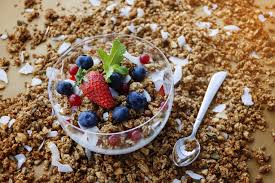 Did You Know? Seventy percent of your immune system is located in your digestive system. It's True...... Therefore, poor gut health affects not only your gut but every organ in your body. It can affect the pancreas and result in blood sugar imbalances. It can affect the functioning of liver, which is responsible for detoxifying your body, and lead to malabsorption, poor nutrient assimilation, and reduced bile flow (key for breaking down fats and proteins). It can also cause intestinal dysbiosis, SIBO (small intestinal bacteria overgrowth), and many other issues like IBS (irritable bowel syndrome), colitis, Chron’s, leaky gut, etc. The health of your gut depends on a healthy 80/20 ratio of good bacteria versus bad bacteria. However, taking birth control pills regularly, taking an antibiotic even once, stress, pollution, and a diet high in sugar and processed foods will wreak havoc on your body’s healthy gut flora. Just a side note: Many times when we eat dairy, and meat with growth hormones and other things in them, or are eating pesticides on food, we are taking in antibiotics without even knowing. That is a huge reason for eating organic. One huge thing that I didn't realize was affecting my gut was wine. Did you know that 95% of conventional wines tested, tested positive for glyphosate, the main ingredient in the pesticide Roundup? Now if you are drinking that wine, even a few times a week, think of what you are doing to your gut......so, am I saying don't drink wine? Not necessarily, but what I am saying is find a better wine. Click here for a great option Without good bacteria in your gut, you could experience:
Probiotics - The Good Guys Consuming probiotics, either in supplement form or through probiotic-rich food and drinks, is an ideal way to restore the good bacteria in your gut. Let’s talk about probiotic supplements first. When choosing a probiotic, make sure it has at least eight billion live cultures. Personally, I prefer at least 10 or 15 billion. You also want it to have at least two different strains of bacteria. This is because our guts are home to many different strains of bacteria, so you want to nourish them all! An important factor to consider when choosing your probiotic is whether or not it needs to be refrigerated. As a general rule of thumb, if you bought it while it was in a fridge, you should store it in a fridge. If you travel, it is great to have a probiotic like Garden of Life Primal Defense, which does not need to be in the fridge. I actually believe non refrigerated are best. Think about it, your body is not refrigerated. Some of my favorites, which you can find on Amazon or at natural health stores, are:
You should also switch out your probiotic every three months. If you have significant gut issues or an autoimmune issue, you can follow a 3-day rotation schedule. This means you want to have three different probiotics on hand and rotate to a new one each day. This prevents your probiotic from becoming resistant to any antibiotics you are taking. If you have an overgrowth of candida or severe digestive issues, you should start off at a slow pace with probiotics. The changing gut ecology brought on by an “overdose” of probiotics is going to send your system topsy-turvy and can lead to many issues, including diarrhea or constipation, fatigue and/or brain fog, body aches, flu-like symptoms, rashes, and possibly a worsening of the symptoms you already have. This happens when probiotics start destroying the bad pathogens in your gut. As they are destroyed, they release toxins that cause unpleasant symptoms. You need to get through the symptoms to get to the other side. I am not saying it is easy. But do not be alarmed. It will pass. To Learn more about my Gut Healing Programs, products, or 1-1 Coaching, click here or for my upcoming Fall Detox Here To your Health Theresa
0 Comments
 Inflammation is your body’s way of protecting you from harmful stimuli or potential injury. Inflammation can appear in many forms, including pain, heat, swelling, redness, and a slowing down or complete halt of an organ’s function Inflammation may be either acute or chronic. Acute inflammation is the initial protective response of your body tissues and is most likely to be transient. Chronic inflammation, on the other hand, is prolonged and can become severe. Inflammation may be caused due to an imbalance of fungi and healthy bacteria in your body see previous blog on Foods to Improve Gut Health. It can also happen as a result of food allergies, toxic environment, stress, and bad diet. Your diet pays a huge role in decreasing or increasing inflammation in your body. If you consume sugary foods, processed foods, or if you are regularly dehydrated, your body is more prone to inflammation while trying to heal itself. Here are some foods that may help reduce the chances of inflammation or relieve any existing symptoms.
2. Blueberries: Blueberries can significantly reduce inflammation if consumed on a daily basis. Blueberries are rich in flavonoids, polyphenol, resveratrol and Vitamin C, all of which are well known for reducing inflammation. Blueberries consist of anti-oxidants which can easily turn off and block all forms of body inflammations. 3. Ginger: Ginger is used in a variety of organic medicines because of its anti-disease, anti-bacterial and anti-inflammatory properties. You can add it as a spice in your foods, drink ginger juice, or blend it with honey and drink as a health shot. The most pleasant way to consume ginger, however, is a daily cup of hot ginger tea. 4. Dark Chocolate: Dark chocolate is one of the healthier varieties of chocolate. You can add some to your oats or combine it with fresh fruit to help reduce inflammation. 5. Turmeric: Turmeric is also widely used in organic and all natural medicines. You can add to food as a spice or stir in a pinch to your milk or smoothie. Turmeric helps slow the production of the two most inflammatory enzymes, 5-LOX and COX-2. There are a variety of foods you can add to your diet to help reduce or avoid inflammation. These are a few of the easiest and most accessible. If you are experiencing severe, chronic inflammation, however, be sure to consult a physician before making significant changes to your diet. If you would like to learn more about my Fall 5 Day Detox, to help you rid the toxins from your body, and help rid inflammation, just click here. Yours in health and wellness, Theresa  DID YOU KNOW THAT MOST ILLNESSES, INCLUDING ANXIETY AND DERESSION, LEAKY=GUT, ALLERGIES, AND WEIGHT GAIN CAN BE ATTRIBUTED TO POOR GUT HEALTH? Most people don’t realize this; however, seventy percent of your immune system is located in your gut. Therefore, if your gut is unhealthy, your entire body will be out of whack. If your gut is healthy, your immune system will be unstoppable. The good news is that your body can easily regenerate itself when supported with the right foods and the right mindset. Yes, it really is that simple. 6 Foods to Improve Gut Health Probiotics may be one of the most important groups of nutrients that improve the function of your intestine and other organs. However, many people are not familiar with the significance of incorporating a healthy dose of probiotics into their diet. Here are a few foods and drinks that provide your body with the probiotics it needs to function properly. Yogurt Yogurt is enriched with healthy bacteria that help improve the performance of your gut and boost its overall function. Probiotics facilitate the growth of healthy bacteria in your body, which prepares your body to fight against gut inflammation. Yogurt is an inexpensive, plentiful source of probiotics, but be sure to choose the most beneficial varieties. Organic and Greek yogurts contain a higher level of probiotics as compared to their non-organic counterparts. Avoid purchasing yogurt that is actually labeled as “probiotic.” The companies that claim to offer probiotic-laden yogurts tend to add corn syrup, excessive sugar, artificial sweetener, and dyes in their products to expand its shelf life. Also, this type of yogurt is frequently pasteurized, which ends up killing the probiotics in the yogurt. Kefir Kefir is a yogurt substitute that provides high levels of probiotics to help treat inflamed or leaky gut. It is produced by combining rice, sheep, goat, cow, or coconut milk with a gelatinous grain and fermented. The fermentation process expedites the growth of healthy bacteria. Kefir contains approximately 10-34 types of probiotics that can quickly soothe the symptoms of a leaky intestine. Kombucha Kombucha is a type of drink enriched with high levels of probiotics and is often recommended to patients who have been diagnosed with an inflammatory and leaky gut. Kombucha’s high level of Symbiotic Colony of Bacteria and Yeast (SCOBY) plays a vital role in improving the performance and functions of your gut. It is prepared by combining SCOBY with sugar extracts to sweeten the juice and initiate the fermentation responsible for the probiotic content. When correctly prepared, kombucha provides a number of health benefits that that can help improve the condition of your digestive system, increase your metabolism and aid the function of the liver. Miso Miso is packed with probiotics that play a crucial role in improving the performance of your gut. Miso is prepared by combining fermented rye, barley, and beans with koji. It is often recommended by nutritionists and doctors for patients diagnosed with an inflamed gut. Natto Natto is prepared through the fermentation of soybeans. It has a strong flavor and a high presence of probiotics. Natto consists of Bacillus Subtilis, which plays a vital role in the improvement of your immune system, absorption of vitamin K2, and overall cardiovascular health. It also contains high quantities of nattokinase, which may help in cancer treatment. If you would like to learn more about my health coaching or detox programs, and how to take control of your health, just click here. Yours in health and wellness, Theresa |
Archives
April 2024
Categories nutrition, healthy eating, clean eating, detox, kick the sugar, weightloss |
 RSS Feed
RSS Feed